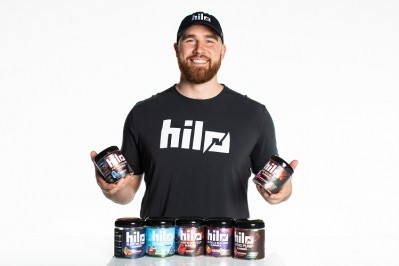Probi’s ‘pregnancy probiotic’ proves potent in preventing anaemia

In a trial involving 326 healthy, pregnant women, Probi’s FerroSorb, which contains the Lactobacillus plantarum 299v strain along with iron, vitamin C and folic acid, showed significant improvement in iron status among the test subjects.
“This is the first double-blind, placebo controlled study in pregnant women evaluating the effect on iron status of probiotics and is an important milestone for Probi in proving the health benefits of our probiotics also for expecting mothers,” says Titti Niskanen, Probi’s director of R&D and clinical operations.
“The results show that use of Probi FerroSorb reduced iron deficiency as well as the prevalence of anaemia for the study participants.
“We are very excited to have concluded the study showing an opportunity to safely improve health in pregnant women, a particularly sensitive population, through the use of Probi’s probiotics.
Placebo-controlled trial
In the randomised, double-blind, placebo-controlled trial, the 326 women were given Probi FerroSorb twice daily from early pregnancy and until delivery.
The effect was measured on iron status and the treatment with the probiotic product showed significant improvement compared to placebo.
The treatment resulted in reduced iron deficiency, significantly reducing the prevalence of anaemia and iron deficiency anaemia during the last trimester of pregnancy in these women.
While Lactobacillus plantarum 299v’s mechanism of action on iron absorption is not completely understood, previous research has pointed to the persistency of Lp299v in the intestine and a possible ferric-reducing ability.
Earlier in vitro tests show Lactobacillus fermentum has this ability, executed via an excreted molecule, p-hydroxyphenyllactic acid,
This molecule could then go onto reduce ferric iron into the more bioavailable ferrous iron, boosting Fe(II) absorption through certain channels in the intestines.
“Probi has now shown that this probiotic concept is safe for use by and provides health benefits to the important population of mothers to be all over the world – a group of consumers in high need of additional iron,” says Tom Rönnlund, CEO of Probi.
According to WHO, about 20–30% of women of childbearing age suffer from iron deficiency with symptoms such as fatigue, shortness of breath, poor immune function and impaired cognition.
“We believe that the strength of the FerroSorb concept is in prevention and since the product is safe there is actually no limit in starting the intake but rather that the earlier the better,” said Niskanen.
“We speculate that taking FerroSorb already before becoming pregnant to build up the iron stores may even be beneficial. In the recent study, intake was started in gestational week 10-12 since this timepoint coincided with the first visit to the midwife.”
Bringwell’s Probi Järn
Probi’s FerroSorb represents the firm’s latest platform in which a number of products have been developed to address anaemia during pregnancy.
In 2016, Swedish manufacturer Bringwell launched a probiotic for boosted iron absorption using Probi’s FerroSorb, while a health claim on the ingredient remained under consideration.
The Probi Järn product – a combination of lactic acid bacteria LP299V, vitamin C, folic acid and iron – joined Bringwell’s existing range of products and used Probi’s strains that included gastrointestinal health product Probi Digestis and immune health Probi Defendum.
“It is a new sector but the targeted consumer here is well educated we believe when it comes to probiotics,” said Niskanen.
“The probiotic strain in the concept – Lactobacillus plantarum 299v is one of the most researched strains so we know it is safe.
“Prior to testing in the pregnant population, we have tested the concept for iron absorption in multiple trials on healthy females.”
Rönnlund added that the firm were currently introducing Probi Gravid (Pregnant) onto the Swedish market to pharmacies as a supplement based on the probiotic concept.
The product also contains the Lactobacillus plantarum 299v as well as folic acid and vitamin C, which plays a role in increasing iron uptake.
“The concept is also under introduction to our customers worldwide, expecting to see new product launches moving forward.”
















